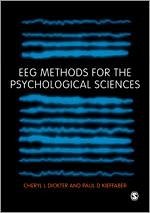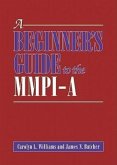"A unique and important resource, full of critical practical knowledge and technical details made readily accessible." - Tiffany Ito, University of Colorado at Boulder "A comprehensive and engaging guide to EEG methods in social neuroscience; Dickter and Kiefabber offer practical details for conducting EEG research in a social/personality lab, with a broad perspective on how neuroscience can inform psychology. This is a unique and invaluable resource - a must-have for scientists interested in the social brain." - David M. Amodio, New York University Electroencephalography (EEG) has seen a dramatic increase in application as a research tool in the psychological sciences in recent years. This book provides an introduction to the technology and techniques of EEG in the context of social and cognitive neuroscience research that will appeal to investigators (students or researchers) wishing to broaden their research aims to include EEG, and to those already using EEG but wishing to expand their analytic repertoire. It can also serve as a textbook for a postgraduate course or upper-level undergraduate course in any area of behavioural neuroscience. The book provides an introduction to the theory, technology, and techniques of EEG data analysis along with the practical skills required to engage this popular technology. Beginning with a background in the neural origins and physical principles involved in recording EEG, readers will also find discussions of practical considerations regarding the recording of EEG in humans as well as tips for the configuration of an EEG laboratory. The analytic methods covered include event-related brain potentials (ERPs), spectral asymmetry, and time-frequency analyses. A conceptual background and review of domain-specific applications of the method is provided for each type of analysis. There's also comprehensive guided analysis for each analytic method that includes tutorial-style instruction and sample datasets. This book is perfect for advanced students and researchers in the psychological sciences and related disciplines who are using EEG in their research.
Hinweis: Dieser Artikel kann nur an eine deutsche Lieferadresse ausgeliefert werden.
Hinweis: Dieser Artikel kann nur an eine deutsche Lieferadresse ausgeliefert werden.








